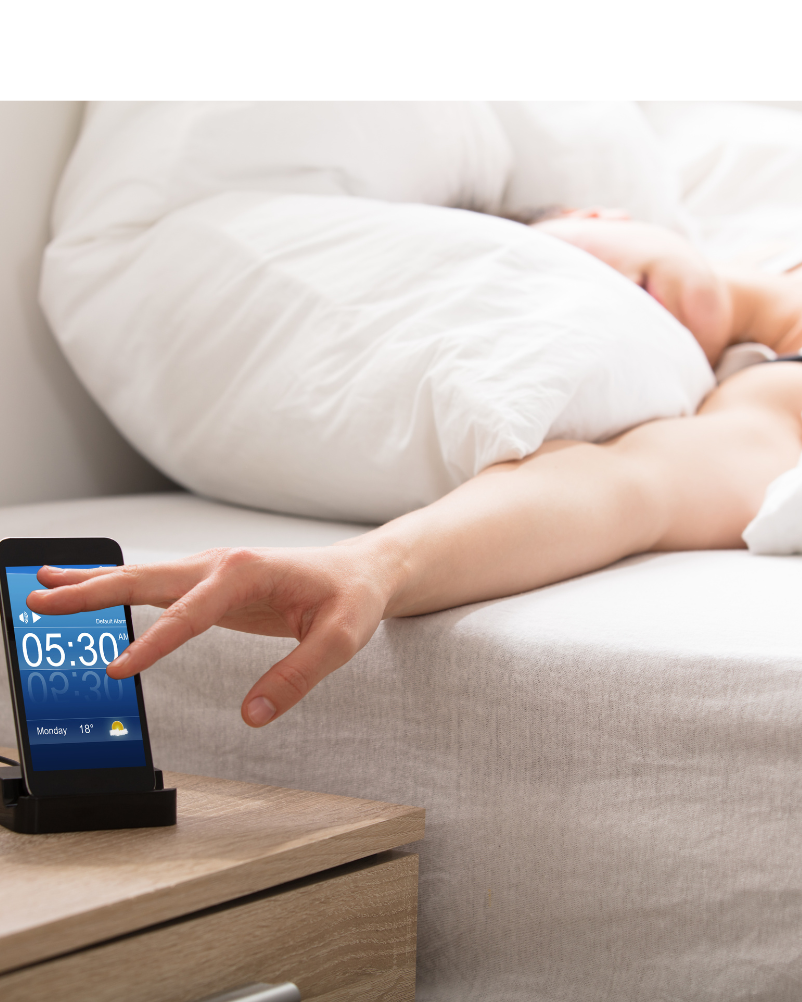
Introduction
Sleeping is one of the most important things we do, and insomnia is the most common complaint I hear from my girlfriends. Sleep helps us regenerate, increases our energy and focus, and gives us the drive to get through the day. But sometimes, it can be challenging to catch up on some shut-eye due to stressors or even our own body’s natural tendencies. In this article, I will discuss some of the most common reasons people lose sleep over too little sleep and provide strategies for increasing your chance of a good night’s rest!
Why We Lose Sleep Over Too Little Sleep!
You may have wondered why we lose sleep over too little sleep. First, it’s important to understand the health consequences of not getting enough sleep and how they affect our bodies, minds, and brains. Sleep deprivation can lead to various health problems, including diabetes, heart disease, Alzheimer’s disease, and more.
The effects of sleep deprivation on the body:
- You gain weight or struggle with maintaining your current weight. Losing just 1-2 hours of sleep each night can cause you to gain up to 10 pounds in a year.
- You have less energy throughout the day. Research has found that chronically underslept people have lower levels of leptin — a hormone that regulates appetite — which leads them to eat more calories than those who get enough rest. They also tend to have higher levels of ghrelin — another hunger hormone — which makes them feel hungrier when they don’t eat enough during wakefulness hours. And if you’ve ever noticed yourself reaching for food after waking up from a nap (or even just falling asleep at night), it’s likely because there’s an increase in hunger hormones when we first fall into a deep slumber. Over these habits could cause changes in how well your body regulates weight through its daily caloric intake/expenditure ratio—which is why it’s so important not only to practice healthy habits now but also stick with them long term!
Why Women Suffer From Sleep Issues
Sleep problems are more common among women than men, especially insomnia. In fact, according to the National Sleep Foundation, 43% of women report having trouble sleeping regularly compared with only 31% of men. Of course, some of this is due to hormones and other physical factors that make it more difficult for women to fall asleep and stay asleep. But what’s more concerning is that while both men and women experience disruptions in their circadian rhythms when they don’t get enough sleep—the body’s internal clock—women seem particularly vulnerable to this disruption.
What makes us so susceptible? There are several reasons why women may have more incredible difficulty getting sufficient amounts of high-quality sleep than men:
- Women tend to be sensitive to light exposure at night (which can disrupt their circadian rhythm).
- Women also manage higher levels of melatonin production than males do. Melatonin helps regulate the body’s natural sleep cycles. Still, it may also make it harder for some females to stay awake later into the evening if they’ve had too much prior exposure during daylight hours.
How Intermittent Fasting and the Right Diet Can Help You Sleep Better
Intermittent fasting is a pattern of eating that involves going for extended periods without food. Instead, you eat in a specific way—often just one meal per day and not at all on another day. This pattern can help reset your Circadian rhythm by mimicking the natural changes that happen during night and day.
Most people find they sleep better when fasting because it helps their body learn to go without food at night, improving sleep quality overall.
Some final thoughts on natural sleep-aids
If you have trouble falling asleep, consider these natural sleep aids:
- Avoid caffeine and alcohol before bedtime. Caffeine is a stimulant that can keep you awake for hours after drinking it. Alcohol acts as a sedative in small doses, but too much or too close to bedtime can cause you to wake up feeling groggy and disoriented.
- Use a sleep mask if necessary (or even if not). If the light keeps you from sleeping well at night, try wearing an eye mask until your body becomes accustomed to sleeping with less light exposure during the day (which won’t happen overnight).
- Don’t eat right before bedtime, either! The digestion process produces heat that can keep your body active while it tries to burn off all those carbs. Eating before bed will also help suppress melatonin production—the chemical responsible for helping us feel sleepy when our circadian rhythm tells us it’s time for rest. In addition, it prevents serotonin release in our bloodstream, making us feel calm and relaxed throughout the night.*
Must Do Strategies For a Better Night’s Sleep
- Follow a sleep schedule.
- Limit caffeine and alcohol intake to mornings, or at least wait until after dinner to consume them.
- Get enough exercise during the day (but not too close to bedtime). Exercise will help promote better sleep quality by helping you fall asleep faster and increasing overall health, which often leads to improved sleep quality over time.
- Avoid blue light of electronic devices late in the evening as this may make it harder for you to fall asleep because it can keep your brain active with stimulating thoughts instead of getting ready for restful slumber! If you’re on social media before bedtime, instead of reading a book or magazine, try downloading f.lux on your computer so that it automatically adjusts its brightness as the sun sets outside (it should do this automatically). You can also download an app called Redshift that does something similar for smartphones or tablets. Be sure not to use screen time 30 minutes prior until 30 minutes after bedtime because screens like these emit harmful blue light waves, which could prevent falling into deep REM stages where most dreams occur.”
Being well rested will increase your drive and motivation. Check out how you can stop losing sleep over too little sleep!
If you’re struggling to stay awake, or you find yourself waking up way earlier than usual and unable to fall back asleep, getting enough sleep is vital. It keeps your energy levels high and your mood happy and can also help with weight loss and improve heart health.
There are many ways of improving the quality of your sleep. First, set aside time during the day for rest—even if that means taking a nap! It will allow your body to recharge between short bursts of activity (like those involved in working). Second, turn off all electronics at least an hour before bed, so they don’t interfere with melatonin production and make it more difficult for you to fall asleep at night.
Finally: If none of these ideas work for you, then talk with your doctor about possible solutions such as medication or therapy
Conclusion
The key takeaway is that you don’t have to toss away your alarm clock! You can still use it to help you get better sleep, but be mindful when it may cause more harm than good. If, at any point during your morning routine, you feel like things aren’t going as planned, take a look at what time it is, and consider letting yourself stay awake for another hour or two before heading back to bed.
Click here for an article on why sleep is so important!
Let’s support each other. Use the share buttons in this article so more women can get help and feel amazing!


